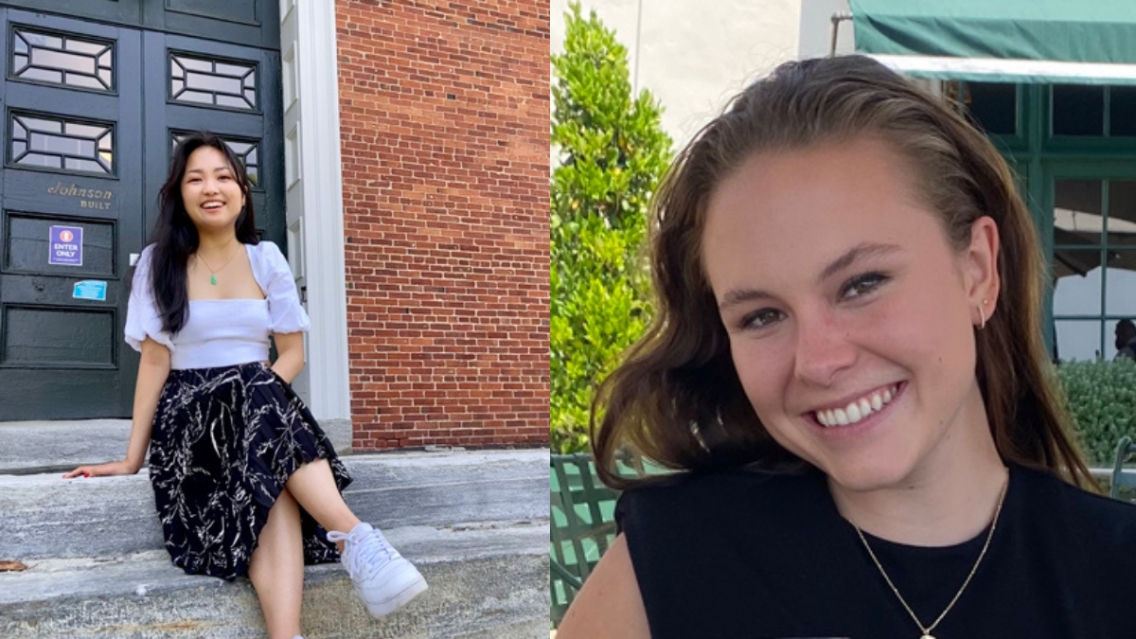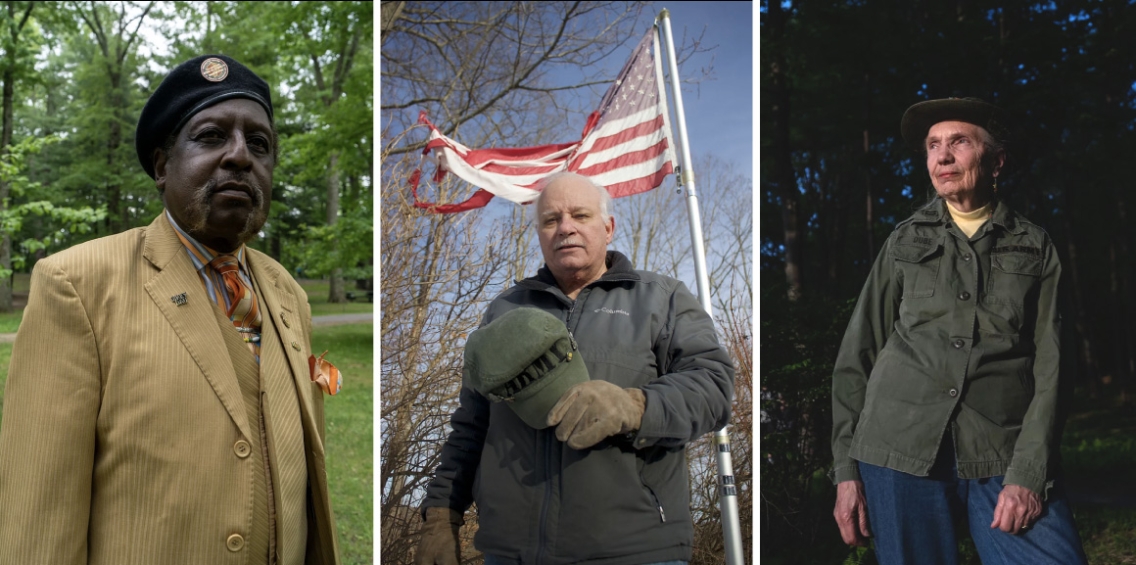Amherst College Highlights Two Research-Focused Projects for Peace
This article originally appeared in the Amherst College Newsroom.

A current Amherst student and a recent graduate have launched two projects centered on interviews with people whose stories they believe need to be heard: those who served the U.S. military in the Vietnam War, and those who live and work in Chinatowns across the country. Both endeavors are Projects for Peace, made possible by a fund from philanthropist Kathryn W. Davis to “to support and encourage today’s motivated youth to create and test their own ideas for building peace.”

Vietnam Veterans: Then and Now, by Emma Spencer
“I want to give these veterans time and space to share what happened to them,” says Emma Spencer ’23E of the intention behind Vietnam Veterans: Then and Now, a project whose website she launched this fall with support from a Davis Projects for Peace grant. “For some of them who’ve really never spoken about it before, I think it’s an extremely cathartic experience.”
Spencer, a studio art major with aspirations toward a career in photojournalism, spent the summer interviewing and photographing dozens of U.S. military veterans, most now in their 70s and 80s, about their memories of serving in the Vietnam War in their young adulthood. She found project participants with assistance from the nonprofit Vietnam Veterans of America and other organizations, as well as through word of mouth from individual veterans themselves.
Spencer subtitled her website The Wall of the Living, as it’s inspired in part by The Wall of Faces, a virtual exhibit that displays photos of those whose names appear on the Vietnam Veterans Memorial in Washington, D.C. “Some of the veterans I interview are so involved with the history of Vietnam and are very accepting of what happened,” she notes. “But some of the guys I’ve interviewed will never step foot near the wall or will never go on the Wall of Faces website. It’s just way too painful.”
In one sense, Spencer’s Project for Peace was delayed: she received the fellowship funding in 2020, but the COVID pandemic put her travel plans on hold. In another sense, though, the project got its start years ago. Spencer grew up hearing stories from her grandfather, Lt. j.g. Scott Wilson Sr. ’66, about his service in Vietnam on the minesweeper USSReaper. In high school in Los Angeles, she created an exhibit of portraits and interviews with Vietnam vets. When she arrived at Amherst, she took a history course called “The Modern American Experience of War Through Literature and Film,” taught by Mark Jacobson, visiting as the John J. McCloy 1916 Professor of American Institutions and International Diplomacy. “I ended up doing an independent study for him about Vietnam, researching the last Americans to leave Saigon in 1975,” Spencer says. Her photography adviser, Justin Kimball, the Conway Professor in New Media, has also offered support and guidance.
Spencer hopes to continue the Vietnam Veterans: Then and Now project for many years. On the website, she encourages more veterans to contact her to share their stories.
Viral Love, by Sabrina Lin
Sabrina Lin ’21 applied for Projects for Peace funding amid the COVID-19 pandemic, she says, “at a time of increased attention on anti-Asian violence in the country and also throughout the world.” Rising rates of discrimination, harassment and physical assault against Chinatown residents and other Asian Americans and Pacific Islanders had sparked hashtags like #IAmNotAVirus and activist groups such as Stop AAPI Hate.
But the problems facing America’s Chinatowns go beyond “eight-second clips that go viral on Twitter of somebody getting shoved in the street,” Lin says. “There is also the ongoing concern of the fact that the pandemic has severely impacted business in Chinatown, and … concerns about gentrification, which has been happening in Chinatowns for years and years and years and has only been accelerated during the pandemic.”
And, of course, Chinatowns are more than just sites of strife—they are living, breathing neighborhoods, home to thousands of people and to what Lin calls “stories of community, resilience and peacebuilding.” Such stories are the focus of her Project for Peace, a podcast called Viral Love, for which she spent the summer interviewing residents of Chinatowns in New York City, Houston, Los Angeles and Oakland, Calif. “I talked with people as we bought egg tarts and pineapple buns from beloved Chinatown bakeries, in front of storefronts and street musicians, and at tenants’ rights meetings and community protests,” she says in the introductory episode.
This is not Lin’s first foray into podcasting. At Amherst—where she was a pre-med student and an anthropology major—she was part of a research colloquium led by Franklin Odo, the John Woodruff Simpson Lecturer, in which students produced the podcast Veritas: Asian Americans & Affirmative Action. Lin’s episode examined how first-generation Chinese Americans discussed affirmative action on the internationally popular and influential app WeChat. “In particular, there is a right-leaning slant to a lot of the discussion that happens in WeChat circles,” she says. As a counterbalance to this slant, Lin has teamed up with several students from Yale to found the Xīn Shēng Project, which provides “alternative, progressive perspectives on the most widely circulated issues on WeChat and beyond.” Her Project for Peace is also part of the Xīn Shēng Project.
Lin, who is from the San Francisco Bay Area and is now teaching English in Taiwan on a Fulbright fellowship, recalls another class that helped to shape Viral Love: a UMass course on Asian American feminism. The students read writings on “racial melancholia” in which David Eng and Shinhee Han suggest “that one way for Asian Americans to grapple with the very real impacts of being racialized in this country, the effects of which have become very, very apparent in this past year, is to create a public ‘holding environment’ where Asian Americans can grapple with these issues,” Lin says. “For that class, the holding environment that we decided to create was a panel that featured a lot of Asian American scholars at Amherst. It was incredible—packed room, standing room only.”
She hopes “this podcast will kind of recreate the magic of that, but in a digital space.”

